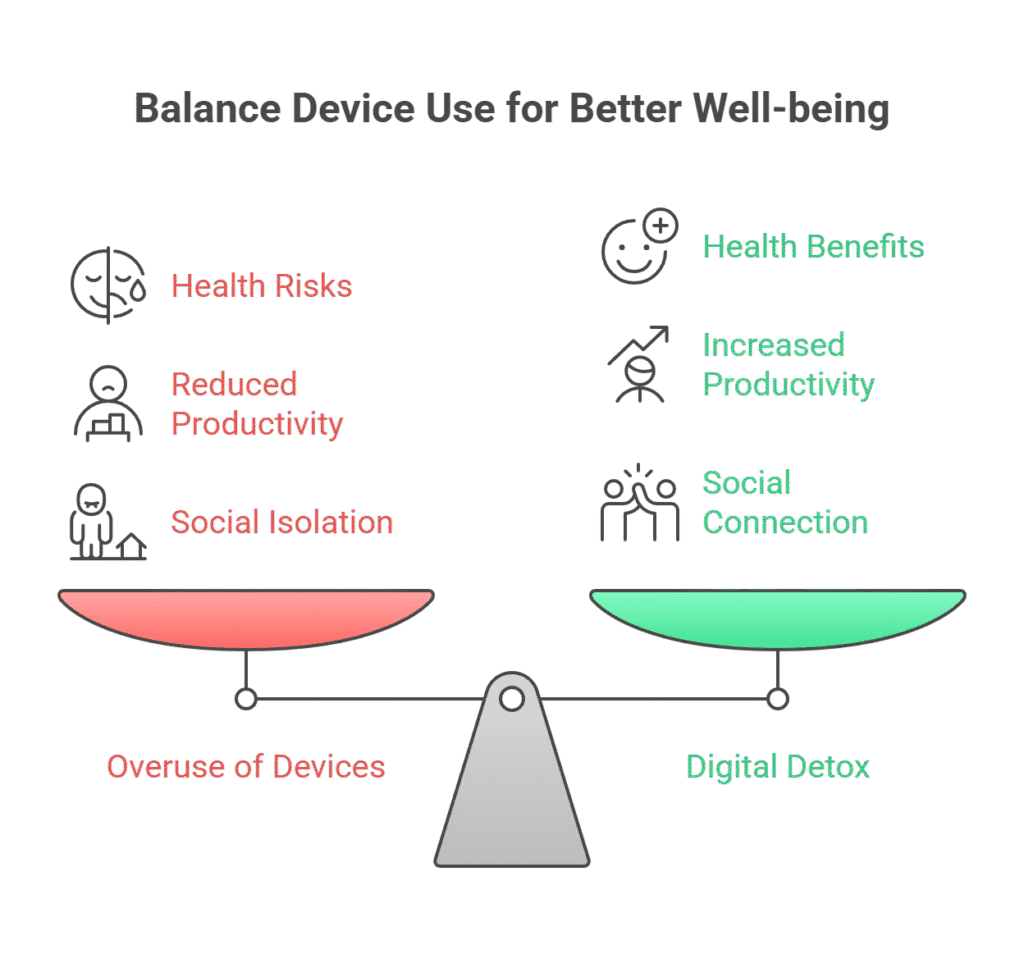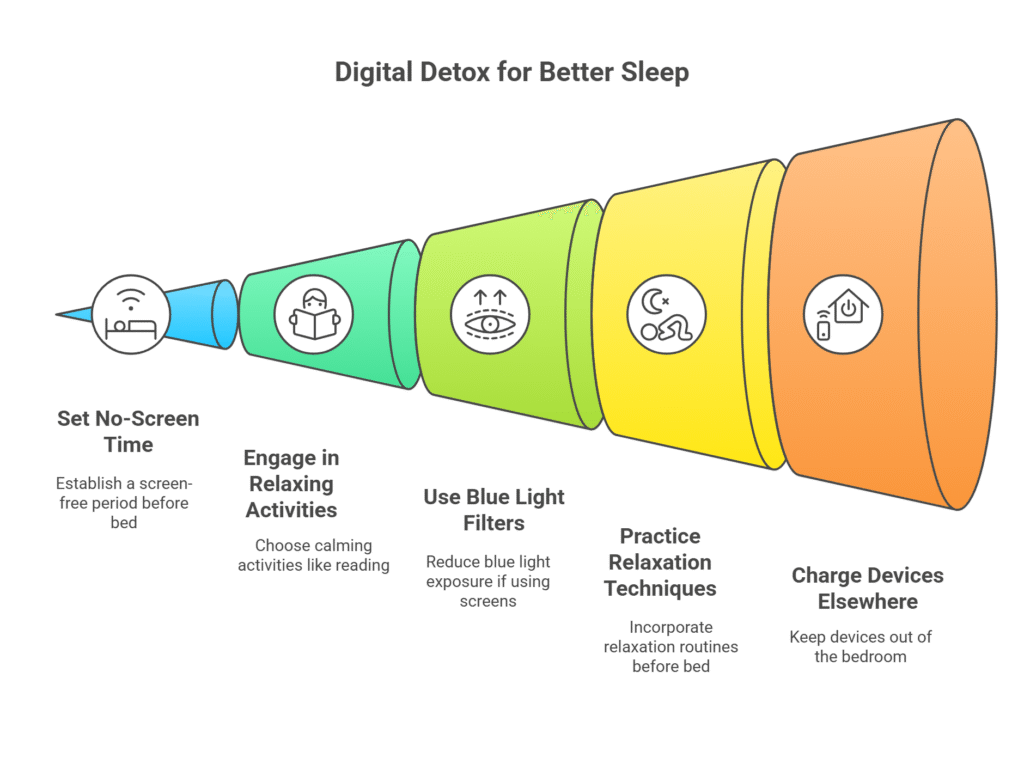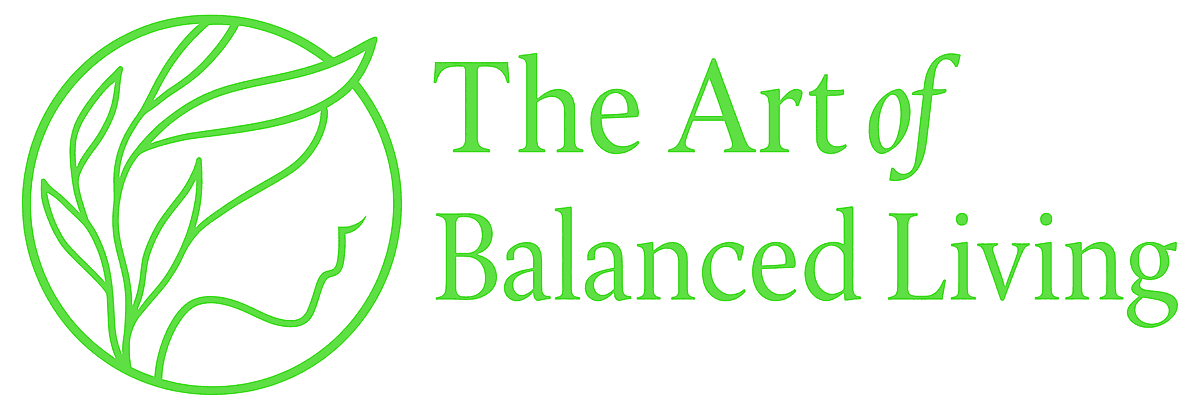
What is a digital detox for better sleep?
Screens can be found in phones, computers, laptops, TVs, and many other devices today. Many of us find it difficult to stay away from screens, even while we are asleep.
That habit can keep us from sleeping because it makes it difficult to calm down and drift off. This is why a break from technology can help you sleep better. Before bed, turn off all computers so your brain has a chance to calm down and get ready for sleep.
You can sleep better, feel better, and have more energy during the day if you make this small difference.
Setting healthy boundaries, especially in the evening, is more important than giving up technology for good. Setting aside time to unwind and chill out without a computer can help many people unwind, feel less stressed, and get ready for bed. Make this small change that will improve your health, no matter what age or way of life you have. Here are some easy steps to start a digital detox for better sleep.
When you look at screens before bed, they keep your mind active, which makes it difficult to fall asleep.
You have to put away your gadgets before bed if you want to do a digital detox.
This makes you feel better and gets your mind ready for sleep.
A better night’s sleep can help you feel better and charge you up.
Giving up technology is not what a digital break is all about. It’s about setting healthy limits.

How can a digital detox for better sleep help you?
Why does reducing technology use significantly improve your sleep? The primary reason is blue light. We think it’s still daytime because TVs emit off blue light. Melatonin is the chemical in our bodies that makes us sleepy.
The body can’t make it anymore. This makes it harder to fall asleep and stay asleep. The negative effects are not solely due to blue light, however. We can also get stressed and anxious from things like Facebook, the news, and work texts. After a digital break, your brain will work less quickly. This approach will help you relax and get a good night’s sleep.
It has been proven that people who don’t use computers before bed get to sleep faster and stay asleep longer, a digital detox for better sleep. will help you sleep better at night and keep your eyes healthy.
The blue light from screens stops melatonin from working, which makes it harder to go to sleep.
It’s fun to look at screens, but they can make you feel more stressed and nervous.
Taking a break from electronics can help you relax and get ready for bed.
Stopping to look at screens before bed can help you fall asleep faster and sleep better.
Less time spent on the computer can help with eye pain and headaches.

Steps to Take to Start Your Digital Detox for Better Sleep
Are you ready to try cutting back on technology and a digital detox for better sleep? Make sure you don’t use your computer at any other time every night. It should be at least an hour or two before bedtime.
That means you can’t bring TVs, computers, phones, or tablets. Read a book, do some gentle stretches, or practice being aware. These activities will help you relax without involving computers.
If you can’t stay away from computers all the time, use blue light filters or “night mode” on your devices to cut down on your exposure. Making it a habit to relax before bed is important. To achieve this, you could take a warm bath, drink herbal tea, or write in a notebook.
Last but not least, charge your tools somewhere other than your bedroom. That way, you won’t have to go there to check your stuff. Over time, these habits will become second nature, and you’ll begin to feel better. It will be simpler – a digital detox for better sleep – and you’ll be more rested when you wake up.
One or two hours before bed, you should set a “no-screen” time.
Get away from the computer and do something relaxing, like reading or moving.
Put on a blue light mask if you have to use a computer at night.
Do something relaxing every night before bed to tell your brain it’s time to sleep.
To avoid giving in to your urges, don’t charge your gadgets in bed.

Why cutting back on electronics can help you sleep better
In many ways you can start a digital detox for better sleep. Taking a break from your screen can help you sleep better. The first thing you’ll likely notice is that you’ll sleep better and longer.
Thoughts and blue light can keep your brain from going into deeper, more restorative sleep states. It will make you feel better in the morning and get you ready for the day. Another big plus is less stress and fear. Emails from work and social media can make you feel worried and keep your mind going all night.
Taking a break helps you rest and relax because it gives your brain the rest it needs. Better mental health is another plus. Small amounts of screen time before bed can help people, especially teens and young adults, feel less lonely and down.
Furthermore, don’t forget to get things done. Getting enough sleep will help you focus, be more creative, and have more energy during the day.
Stronger sleep and more time to sleep.
Less time spent in front of a computer makes you less stressed and worried.
You’ll feel less sad and alone and have better mental health.
It gives you more energy, focus, and work to do during the day.
Everyone should be happier and healthier.

How Can You Start Your Digital Detox for Better Sleep?
It’s simple to begin a digital fast to sleep better, but it can be tough to keep it up. Here are some beneficial ideas to help you stay on track. First, make a note or set an alarm on your phone to remind you to put away your gadgets.
This helps you remember to do it and makes the practice last longer. Second, get away from screens and do some things you enjoy. You could read, keep a journal, listen to soothing music, or spend time with people you care about.
You must enjoy the things you do for fun, not because they are your job. It would be beneficial to allocate some time for yourself. Changing habits takes time, and it’s okay to fail occasionally. Be proud of your progress, no matter how small it is, and keep going. Once your brain becomes accustomed to it, turning off at night will become easier for you.
Last but not least, don’t use gadgets in bed. To eliminate the temptation and improve the sleep environment, charge your gadgets in a different room. You can try these tricks—a digital detox for better sleep.
Set alarms to help you remember to put away your tools before bed.
Before you go to sleep, find fun things to do that don’t involve computers.
Don’t rush into making the habit, and enjoy the little wins along the way.
Do not let gadgets into the bedroom if you don’t want to give in to weakness.

FAQ Section
Q: How long before bed should I stop using the internet?
As for the best results, experts say to start your break from screens an hour to two hours before bed.
Q: What else can I do besides watch screens before bed?
As an answer, you could read a book, do some easy stretches, write in a notebook, or drink herbal tea.
Q: Can I still use my phone if I put on a blue light mask?
A: Blue light shades can help, but you should still try to avoid computers as much as possible.
Q: Will giving up tech help me sleep?
A: A lot of studies and real-life examples show that using screens less before bed does help you sleep better and longer.
Final Thought
A break from technology can help you fall asleep again and feel better in general. When you make small changes to your practice, big things can happen. Do not try to be perfect before you begin. A digital detox for better sleep. makes you feel better and less stressed when you sleep better.
It is good for your body and mind to take a break from machines.
Download Your Free 7-Day Digital Detox Tracker (PDF)
Want a complete roadmap? Download my Digital Detox Guide for step-by-step strategies to reset your mind and routines.
Disclaimer & Affiliate Disclosure: This content is for informational purposes only and is not a substitute for professional advice. Some links may be affiliate links, which means we may earn a small commission at no extra cost to you.
